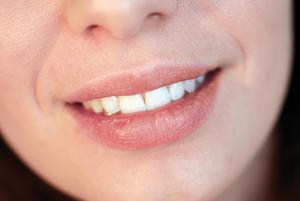How to Manage Dry Mouth
In my last Blog, I discussed the cause of a dry mouth.
In Part 2, I will provide some guidelines for the management of a dry mouth.
Firstly, a little basic Chemistry- Saliva is made up mostly of water but also contains ions and minerals & enzymes that protect your teeth, gums and mucosa (the lining of your mouth).
Importantly, saliva contains bicarbonate and ammonium, which neutralises acids produced by the bacteria in your mouth. This Acid acts to soften the tooth, which causes decay. Saliva is your body’s protection against decay. If there is no or little saliva, you have very little protection. While there is no cure for a dry mouth there are a number of steps that can be taken to manage the symptoms and reduce the risk of decay.
5 Causes of Dry Mouth
Having a dry mouth can be quite uncomfortable, unpleasant and limits normal daily functions like eating and speech. The sensation of a dry mouth is usually caused by a lack of saliva. This lack of saliva is not only uncomfortable but also increases the risk of many oral diseases such as tooth decay, gum disease and fungal infections.
Dry MouthWhat causes the lack of Saliva?
In-adequate hydration: Adequate hydration is required to produce the large volume of saliva we need to produce each day. I recommend 1.5 to 2 litres of tap water daily. Tap water is almost the only drink that has a neutral pH. Most drinks including fruit juice, soft drinks and energy drinks are both acidic (softening your valuable tooth enamel) and contain sugar. Tap water, as opposed to bottled water, also contains a low concentration of fluoride which helps to harden tooth enamel.
Childrens Treats? A Cause for Concern
Rates of tooth decay were steadily declining in Australia through the 1970’s and 80’s to a low point in the mid 1990’s. Since then rates have again increased back to where they were in the 1980’s. What is responsible for this increase?
As a father of two girls aged 6 and 9 I have noticed social and dietary changes that have contributed to this trend. In our house my wife & I keep the sugar to a minimum. In general, on a day to day basis in our house there is no soft drink, juice, biscuits, cakes, ice-cream, chocolates or lollies. I know, sounds like no fun but they do have tuckshop once a week, relatively healthy snacks at home & usually on the weekend if we are out the girls might score something special or two. We need to be firm with the “day to day” because too often sugary treats still come their way.
Dental Check-up: More than just looking for decay
In my last Blog, I discussed the benefits of a check up in the early detection of tooth decay but a dental check up involves so much more than just looking for tooth decay.
The dentist will also look for signs of premature wear from clenching & grinding. Early detection & implementing preventative strategies can potentially same thousands of dollars over the long term. Not to mention saving you many hours of operative dental treatment!
As dentists we also look for signs of acid erosion which has become more frequent with the increasing consumption of acidic beverages. Another cause of damage to teeth most people do not consider is that caused by incorrect brushing technique – either brushing too hard, using a hard bristle brush or both.






